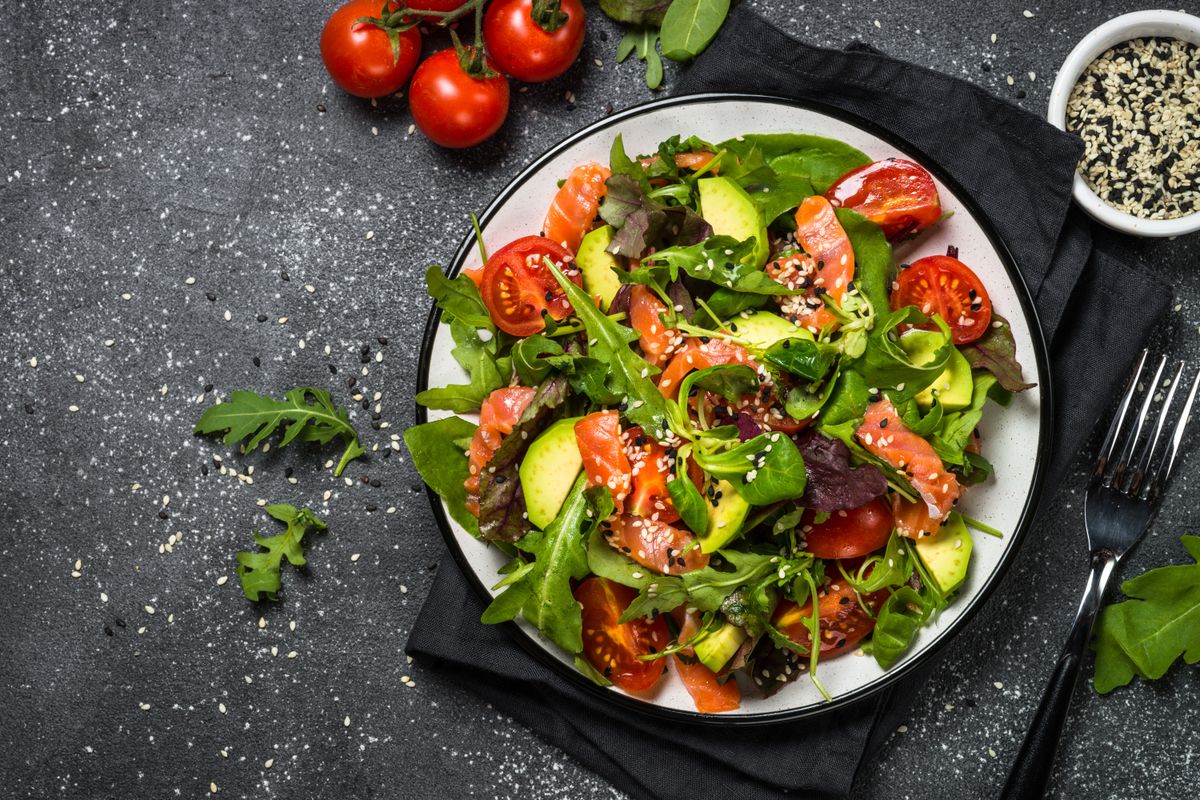Many of us can relate to the experience of feeling unsatisfied after a salad that we thought would keep us full and energized until dinner. However, making your salad more filling and nutritious doesn't have to be a challenge. It all starts with incorporating the right proteins.
Protein has a dual effect on appetite. It reduces the levels of ghrelin (known as the "hunger hormone") while boosting the peptide YY hormones that trigger feelings of fullness. Studies show that following a high-protein diet can result in consuming fewer calories each day, leading to weight loss.
To identify the best protein sources for a delicious, filling salad, we consulted expert nutritionist Lauren Manaker, MS, RDN, LD, CLEC, author of the First Time Mom's Pregnancy Cookbook, the 7 Ingredient Healthy Pregnancy Cookbook, and Fueling Male Fertility. Keep reading to discover the foods she recommends to increase the protein content of your salad. For more tips on how to incorporate protein into your meals while maintaining taste and flavor, check out 5 Easy, Delicious Ways To Add Protein To Your Oatmeal.
1) Chickpeas
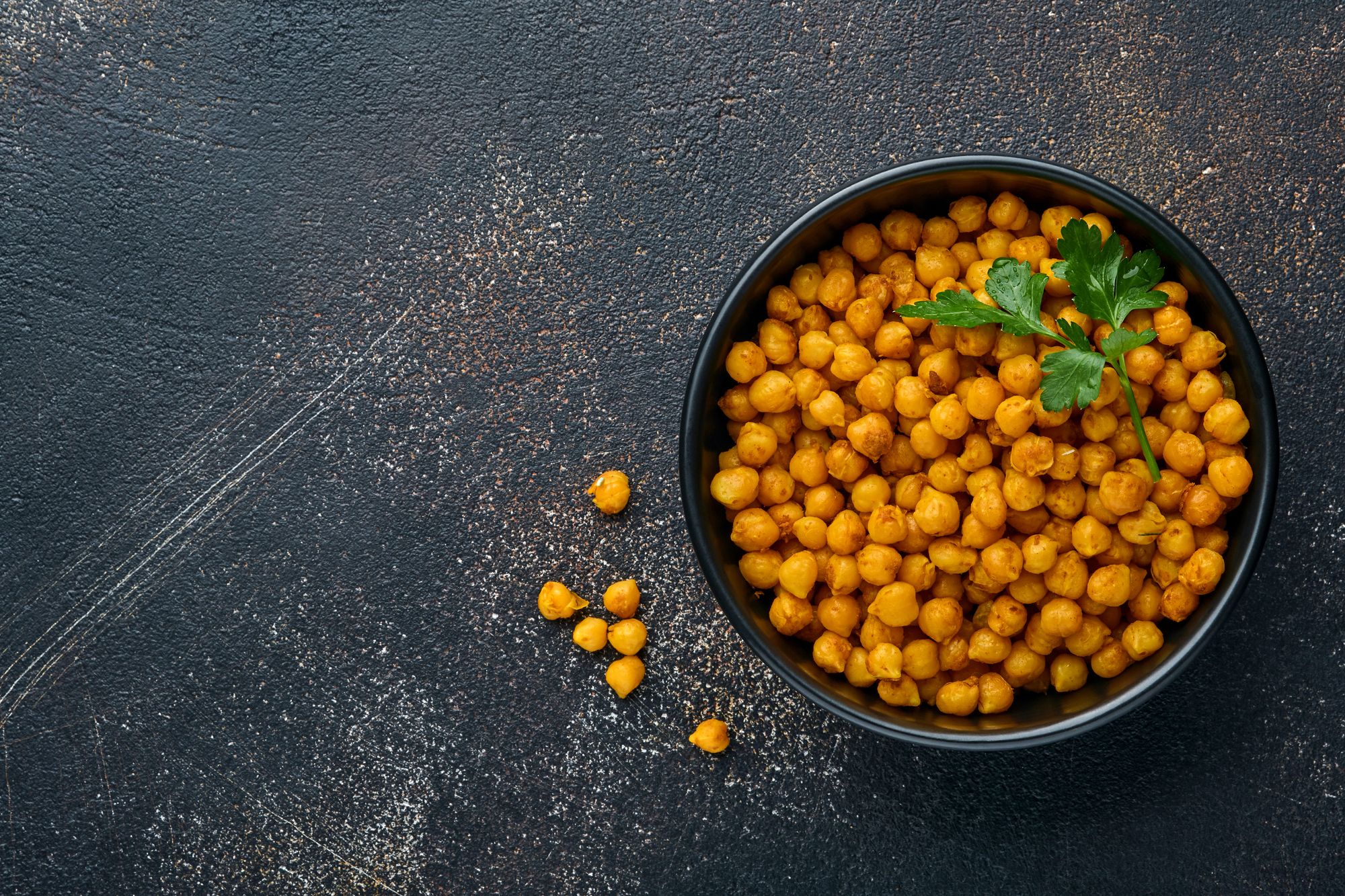
According to Manaker, "Whether roasted or straight out of the can (after being drained, of course), chickpeas are one of the simplest protein sources to add to a salad." Adding 1/4 cup of chickpeas to your salad can increase its protein content by approximately 6 grams.
Manaker emphasizes that these small garbanzo beans are a rich source of plant-based protein, fiber, and antioxidants, which can enhance the satiety of your salad.
2) Black Beans
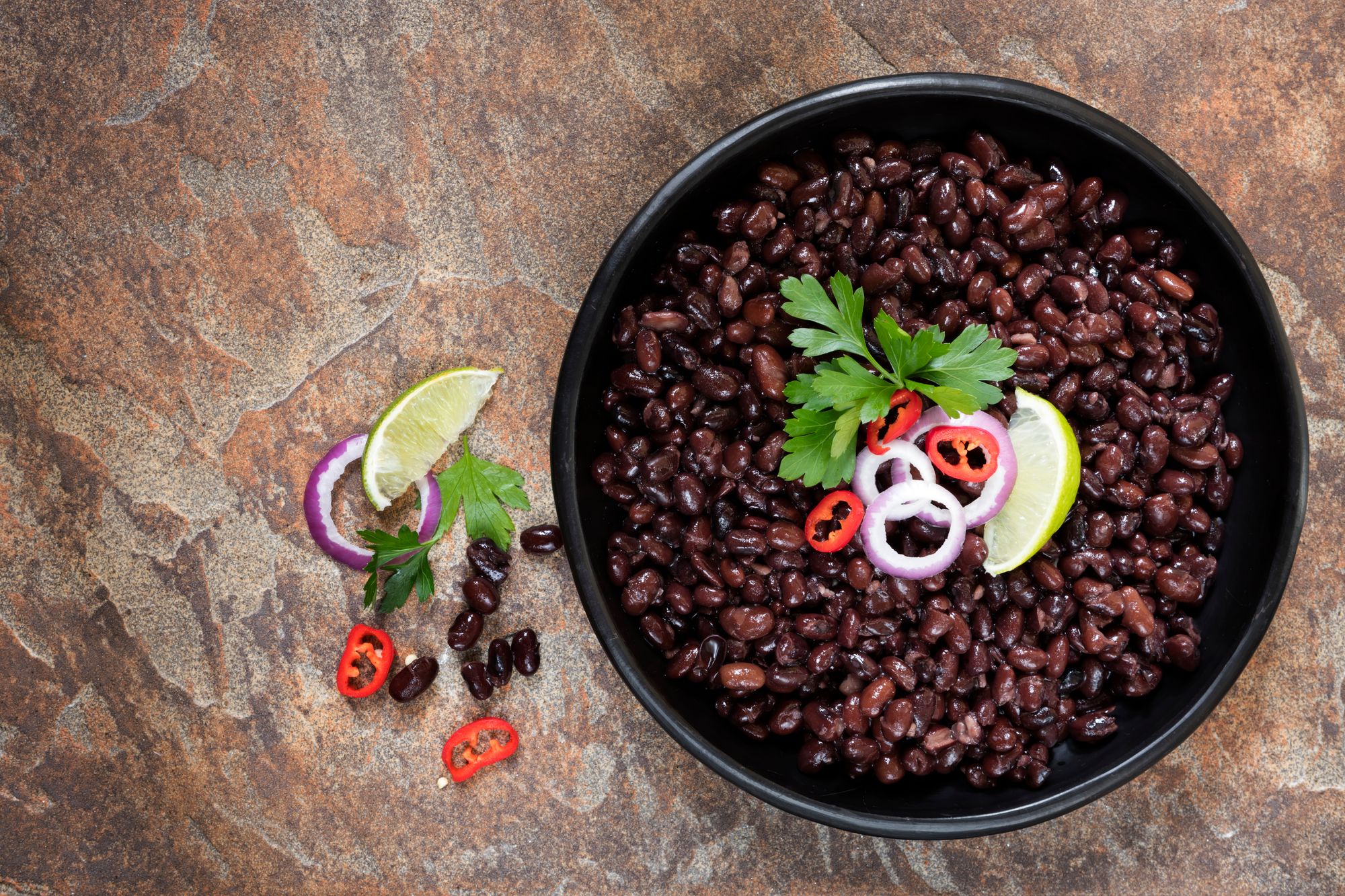
By incorporating just a teaspoon of black beans into your salad, you can transform your light lunch into a satisfying meal that provides almost 6 grams of protein.
Manaker notes that black beans are an excellent source of plant-based protein, fiber, and a variety of micronutrients. Adding them to a Southwest salad can contribute additional flavor and satiating nutrients.
3) Quinoa
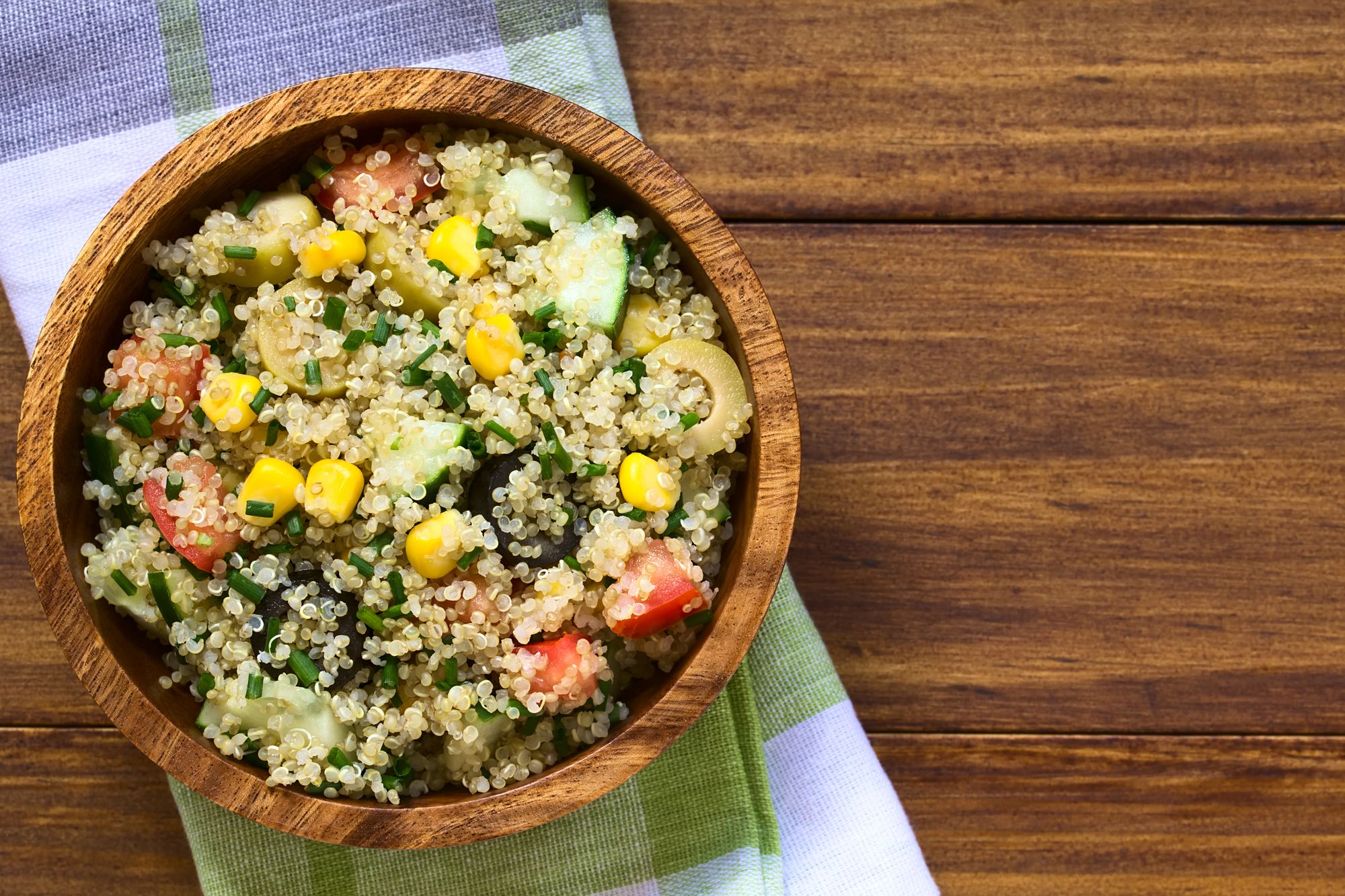
Quinoa is a highly satisfying food that offers over 8 grams of protein per cup. It is also rich in dietary fiber, containing more than 5 grams of fiber per serving, which helps maintain fullness and promotes digestive health. Manaker encourages individuals to recognize the various health benefits that this superfood can provide.
"Don't limit quinoa to just a carbohydrate source," advises Manaker. "While quinoa is often thought of as a 'carb,' it also contains plant-based protein that can enhance the satiety of your salad."
4) Salmon
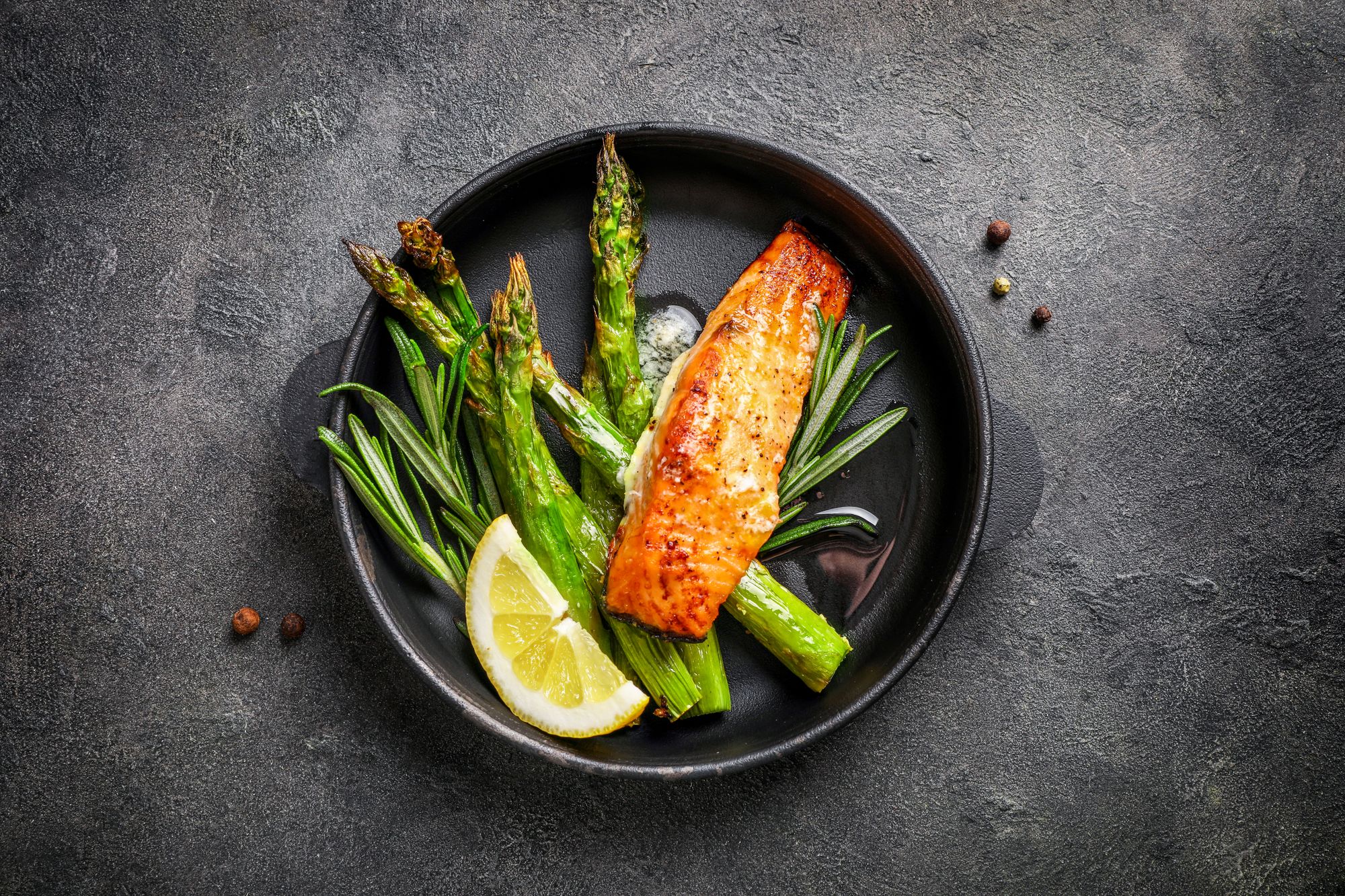
Manaker recommends incorporating salmon into your salad instead of serving it with rice and vegetables as a main course.
If you consume meat, salmon is the ideal protein source to choose. Salmon has a higher protein content, with up to 37 grams of protein per 5-ounce fillet, than other common salad meats like chicken or beef, while containing little saturated fat. According to Manaker, this delicious fish is also abundant in micronutrients that research suggests can help with brain and heart health.
"Salmon is one of the richest sources of omega-3 fatty acids, which can support heart health," explains Manaker. "It is also a high-quality protein source that can enhance any salad."
5) Hard-Boiled Eggs
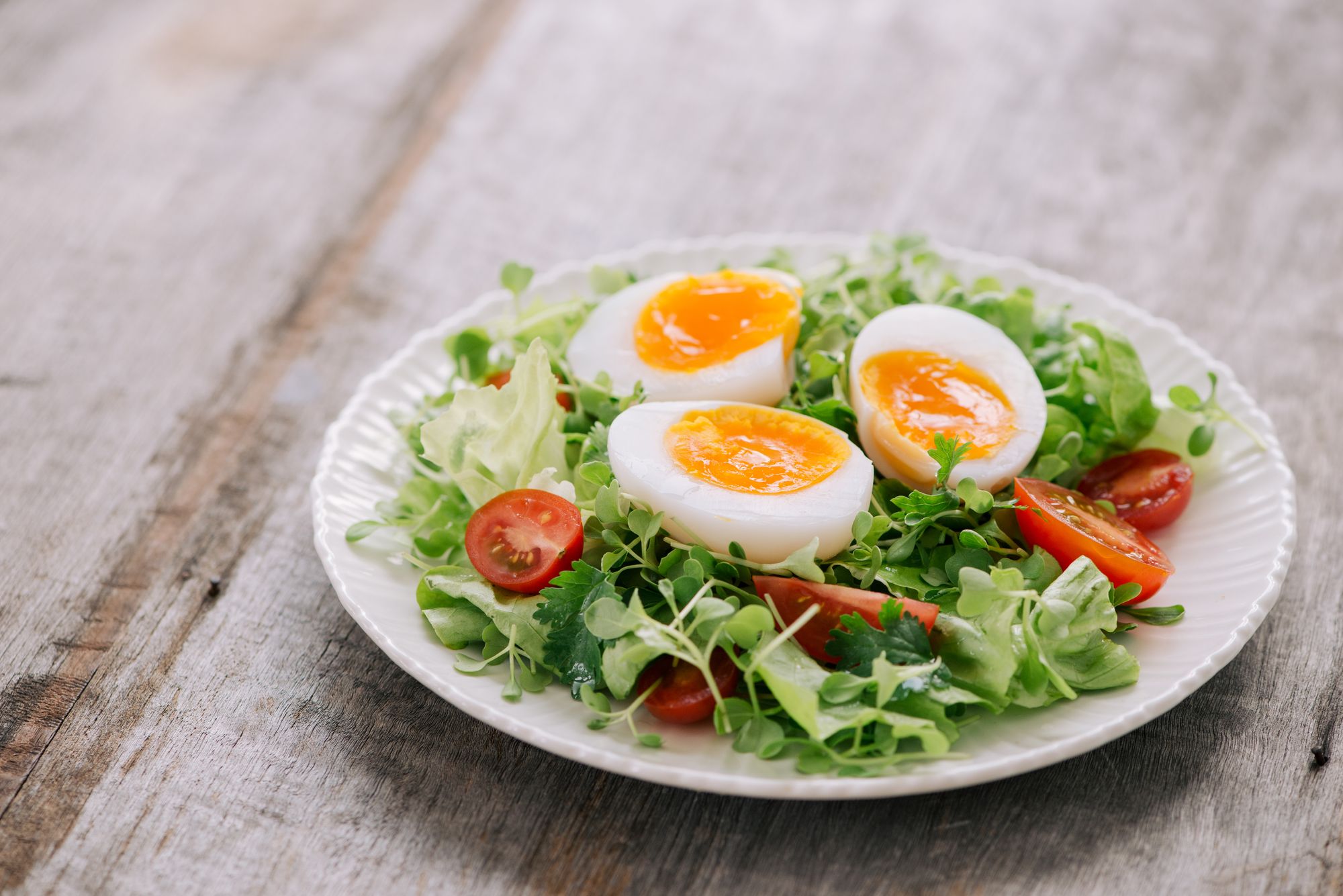
According to Manaker, "Hard-boiled eggs are an excellent source of high-quality protein that also contains several essential nutrients like choline, iodine, and vitamin B12." One large egg, which is a great source of lean protein, has only around 77 calories, making it an ideal salad topping for maintaining satiety while keeping calorie count low.
Manaker recommends that eggs can be sliced, chopped, or mixed with a little mayonnaise to create a classic egg salad, which is a delicious addition to any salad.
6) Walnuts
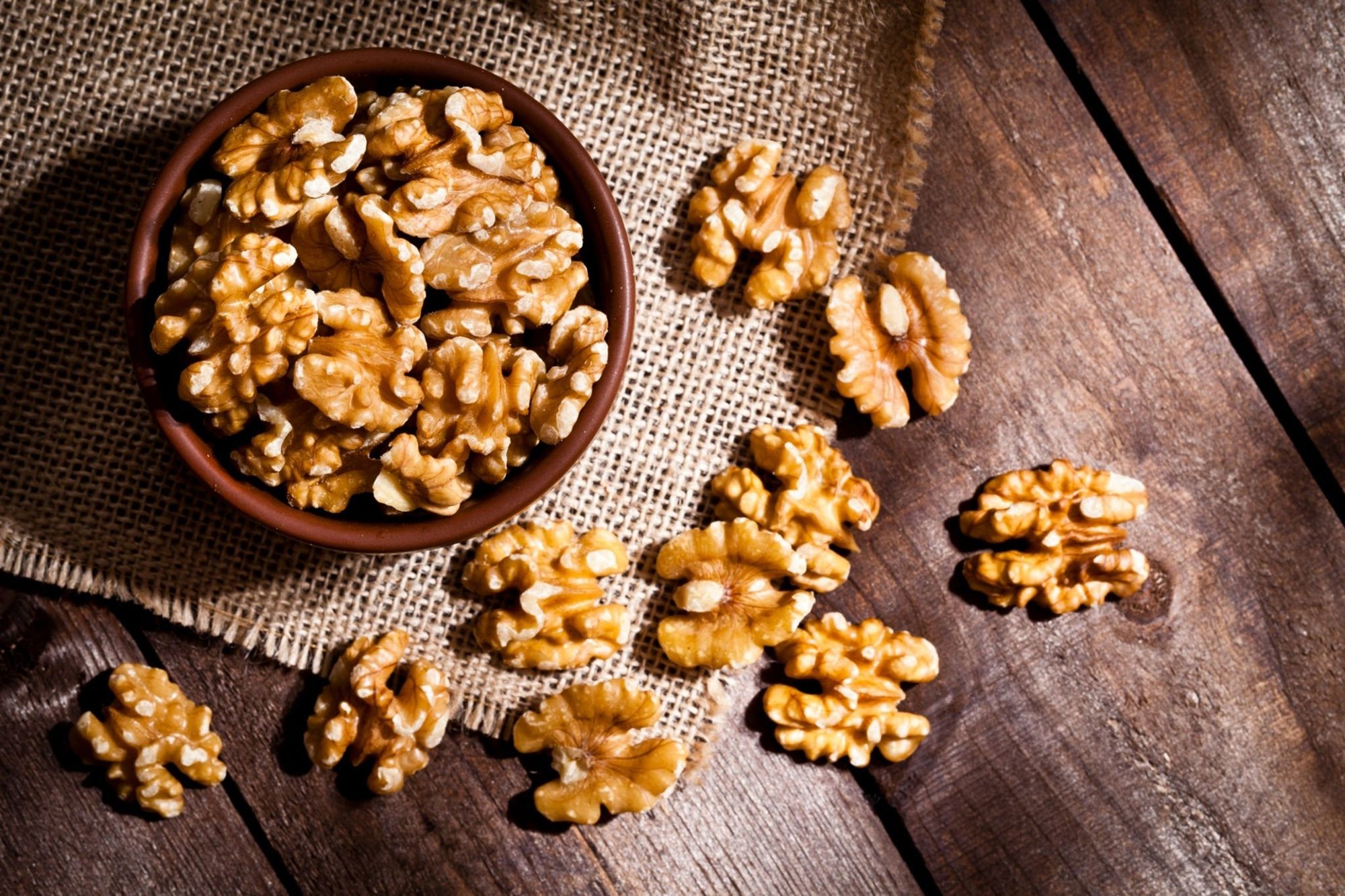
If you prefer a salad with an added crunch, swap croutons for walnuts instead. A standard serving size of one ounce of walnuts provides over 4 grams of filling protein. In addition to their high protein content, these tree nuts can also enhance the taste and nutritional value of your salad, according to Manaker.
"Walnuts are more than just a plant-based protein source since they are the only nut that is an excellent source of ALA omega-3 fatty acids," explains Manaker. "The combination of protein, fiber, and healthy fats promotes satiety, and the flavor that walnuts add can transform any salad in seconds."
6) Pistachios
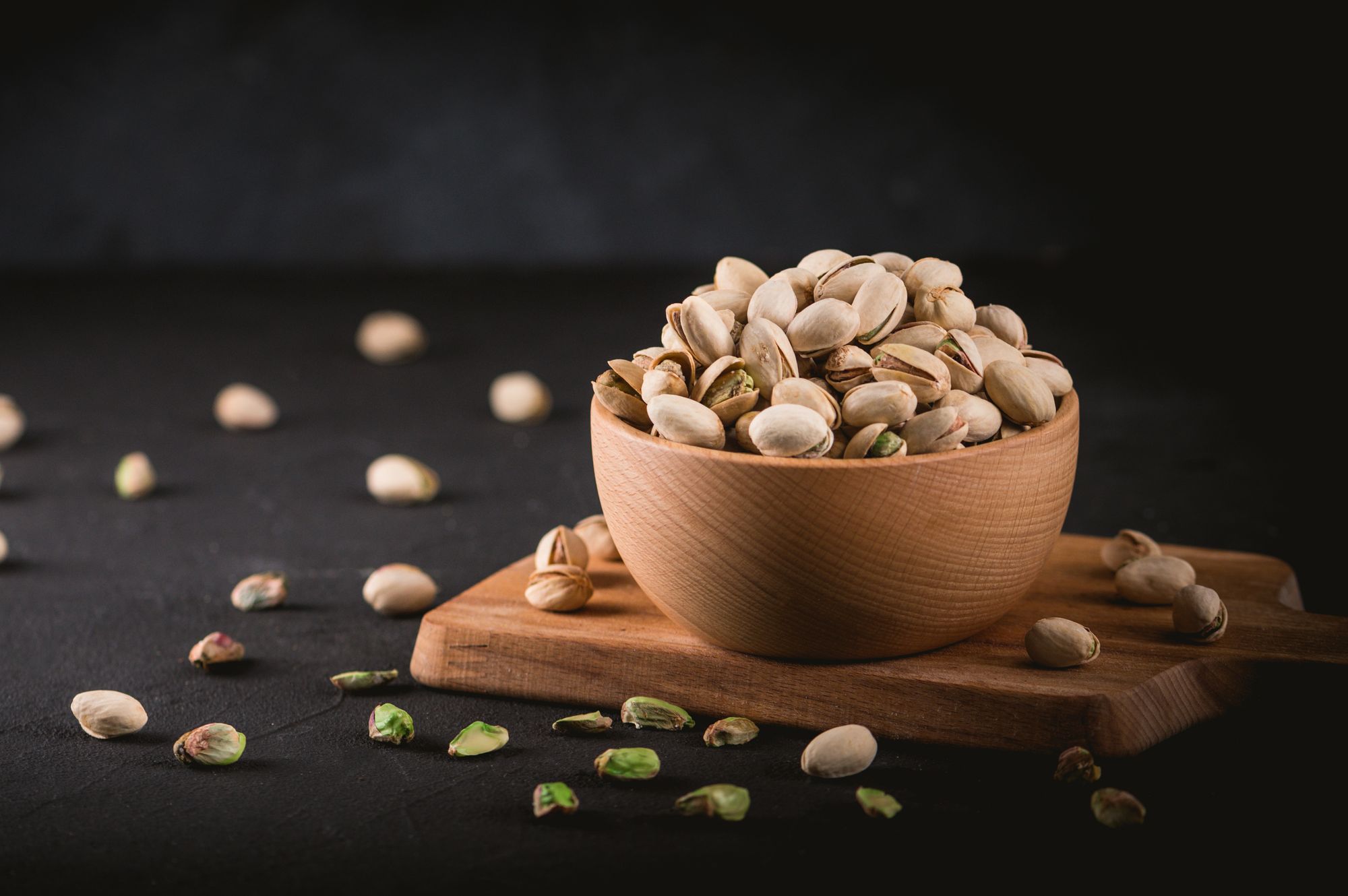
According to Manaker, pistachios provide 6 grams of protein per serving, equivalent to that of an egg, and around 3 grams of fiber, the same as half a cup of broccoli. Additionally, pistachios are rich in vitamin B6, phosphorus, thiamin, and copper, and can offer a boost of antioxidants and nutrients when added to salads.
Moreover, "Pistachios are a plant-based source of complete protein," Manaker explains.
Research conducted by the American Heart Association has shown that consuming more plant-based proteins in your diet, regardless of when you start, can help lower the risk of heart attacks and other cardiovascular-related health issues.
7) Anchovies
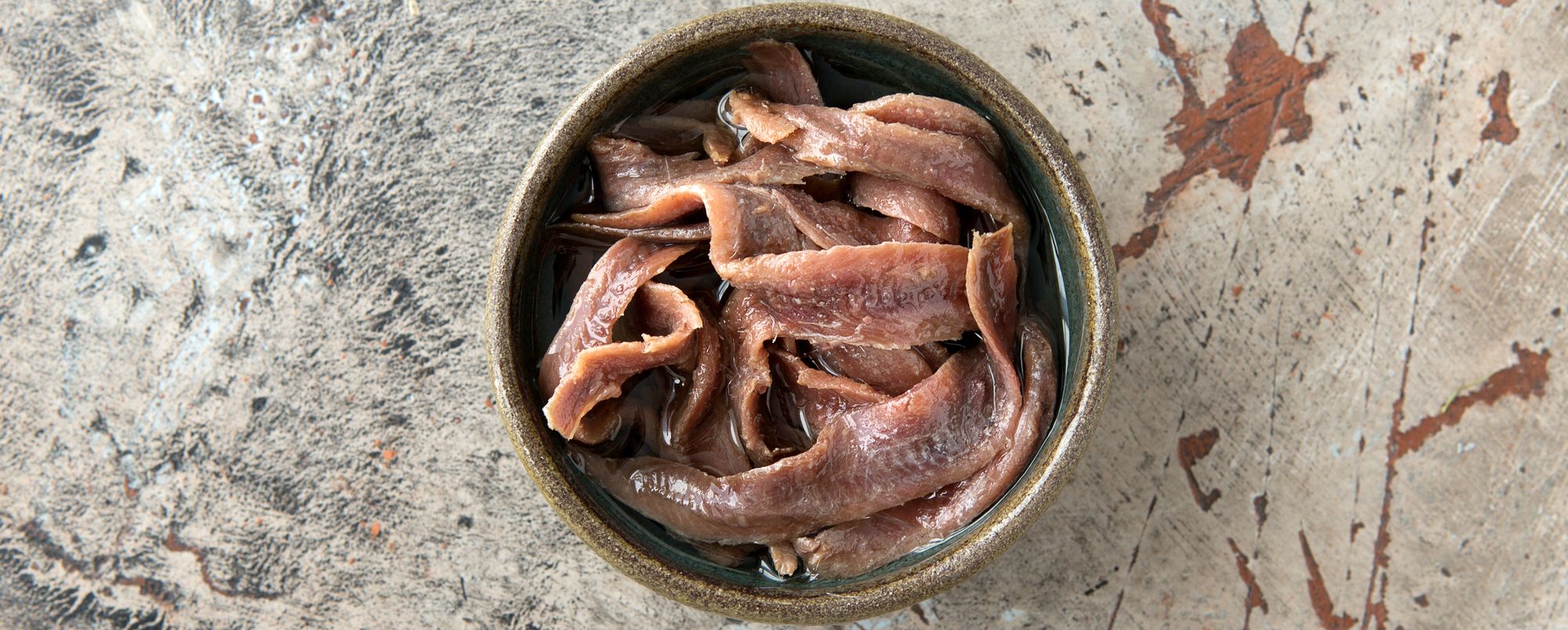
Anchovies might not be everyone's favorite topping, but they pack a protein punch with 13 grams per 2-ounce can, making them a convenient addition to your salad.
"Anchovies are a great protein option for your salad, especially when you haven't had a chance to go to the grocery store, and have a stock in your pantry," says Manaker. "They pair perfectly with a classic Caesar salad and provide significant nutritional benefits. They are loaded with DHA omega-3 fatty acids that support heart health, vitamin B12, and selenium."
"Another benefit is that they are already cooked when you get the tinned version, so all you need to do is drain and serve," she adds.
8) Lean Beef
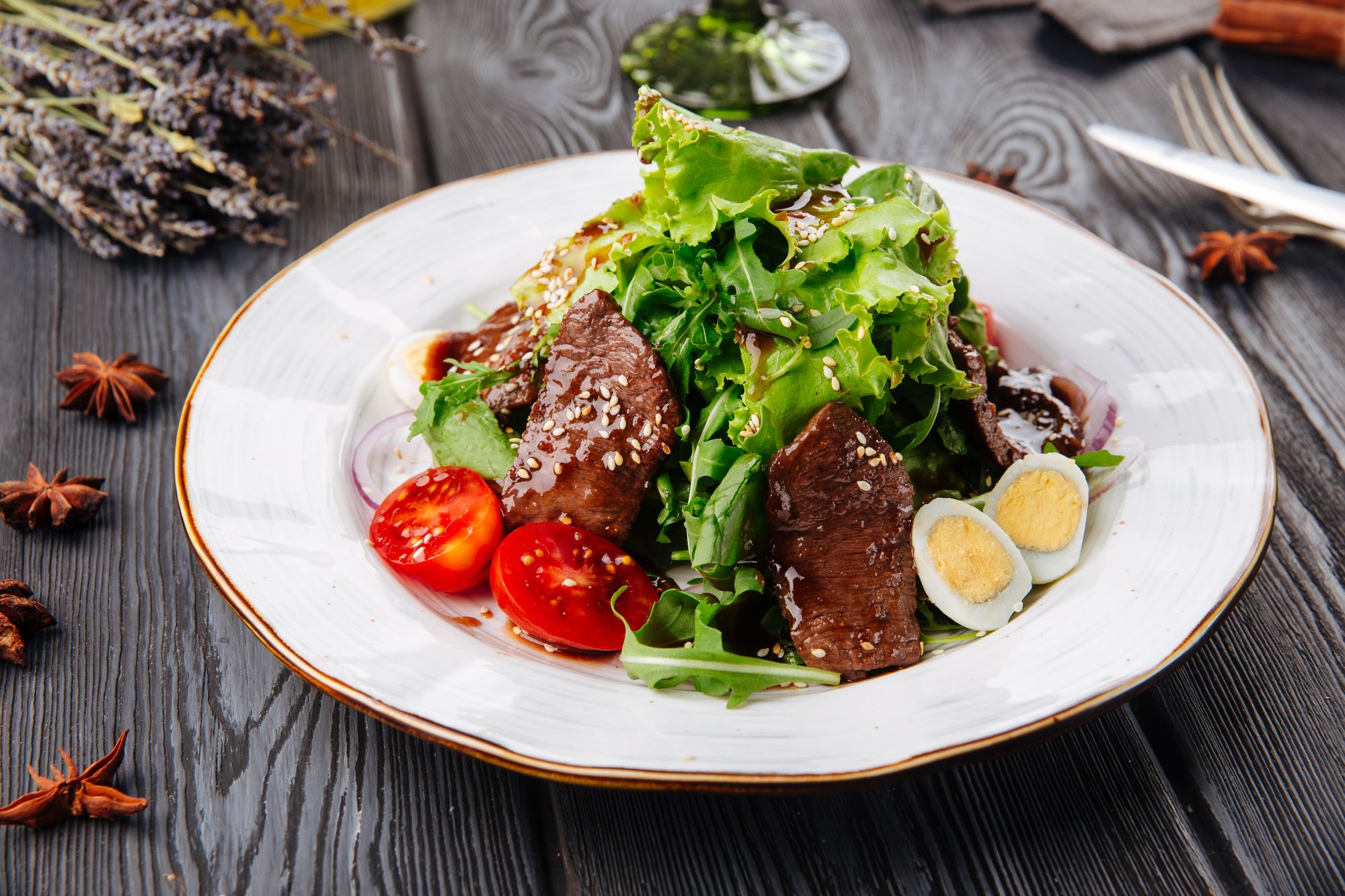
If you're looking for a protein-packed salad, consider adding lean cuts of beef. "Lean cuts of beef can provide high-quality protein, iron, zinc, and other essential nutrients to your salad," says Manaker. By choosing lean cuts and sticking to the recommended portion size of 3-4 ounces, you can create a delicious and satisfying salad that's also good for you when combined with veggies and healthy fats.

